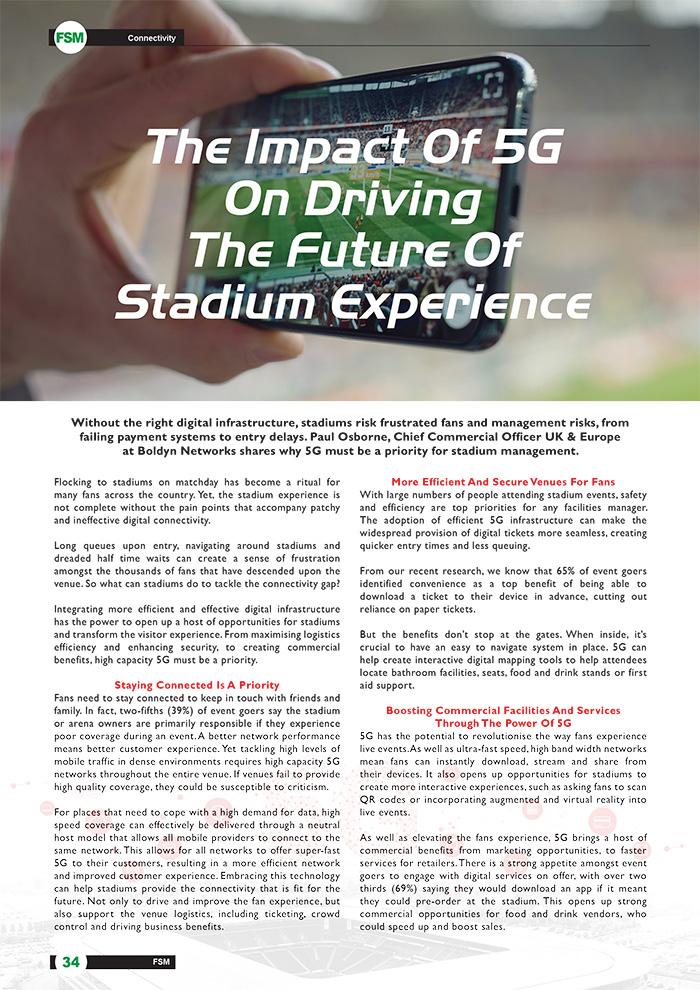The Impact Of 5G On Driving The Future Of Stadium Experience

Flocking to stadiums on matchday has become a ritual for many fans across the country. Yet, the stadium experience is not complete without the pain points that accompany patchy and ineffective digital connectivity.
Long queues upon entry, navigating around stadiums and dreaded half time waits can create a sense of frustration amongst the thousands of fans that have descended upon the venue.
So what can stadiums do to tackle the connectivity gap?
Integrating more efficient and effective digital infrastructure has the power to open up a host of opportunities for stadiums and transform the visitor experience. From maximising logistics efficiency and enhancing security, to creating commercial benefits, high capacity 5G must be a priority.
Staying Connected Is A Priority
Fans need to stay connected to keep in touch with friends and family. In fact, two-fifths (39%) of event goers say the stadium or arena owners are primarily responsible if they experience poor coverage during an event. A better network performance means better customer experience.
Yet tackling high levels of mobile traffic in dense environments requires high capacity 5G networks throughout the entire venue. If venues fail to provide high quality coverage, they could be susceptible to criticism.
For places that need to cope with a high demand for data, high speed coverage can effectively be delivered through a neutral host model that allows all mobile providers to connect to the same network. This allows for all networks to offer super-fast 5G to their customers, resulting in a more efficient network and improved customer experience.
Embracing this technology can help stadiums provide the connectivity that is fit for the future. Not only to drive and improve the fan experience, but also support the venue logistics, including ticketing, crowd control and driving business benefits.
More Efficient And Secure Venues For Fans
With large numbers of people attending stadium events, safety and efficiency are top priorities for any facilities manager. The adoption of efficient 5G infrastructure can make the widespread provision of digital tickets more seamless, creating quicker entry times and less queuing.
From our recent research, we know that 65% of event goers identified convenience as a top benefit of being able to download a ticket to their device in advance, cutting out reliance on paper tickets.
But the benefits don’t stop at the gates. When inside, it’s crucial to have an easy to navigate system in place. 5G can help create interactive digital mapping tools to help attendees locate bathroom facilities, seats, food and drink stands or first aid support.
Boosting Commercial Facilities And Services Through The Power Of 5G
5G has the potential to revolutionise the way fans experience live events. As well as ultra-fast speed, high band width networks mean fans can instantly download, stream and share from their devices. It also opens up opportunities for stadiums to create more interactive experiences, such as asking fans to scan QR codes or incorporating augmented and virtual reality into live events.
As well as elevating the fans experience, 5G brings a host of commercial benefits from marketing opportunities, to faster services for retailers. There is a strong appetite amongst event goers to engage with digital services on offer, with over two thirds (69%) saying they would download an app if it meant they could pre-order at the stadium. This opens up strong commercial opportunities for food and drink vendors, who could speed up and boost sales.












































